Table of Contents
Introduction
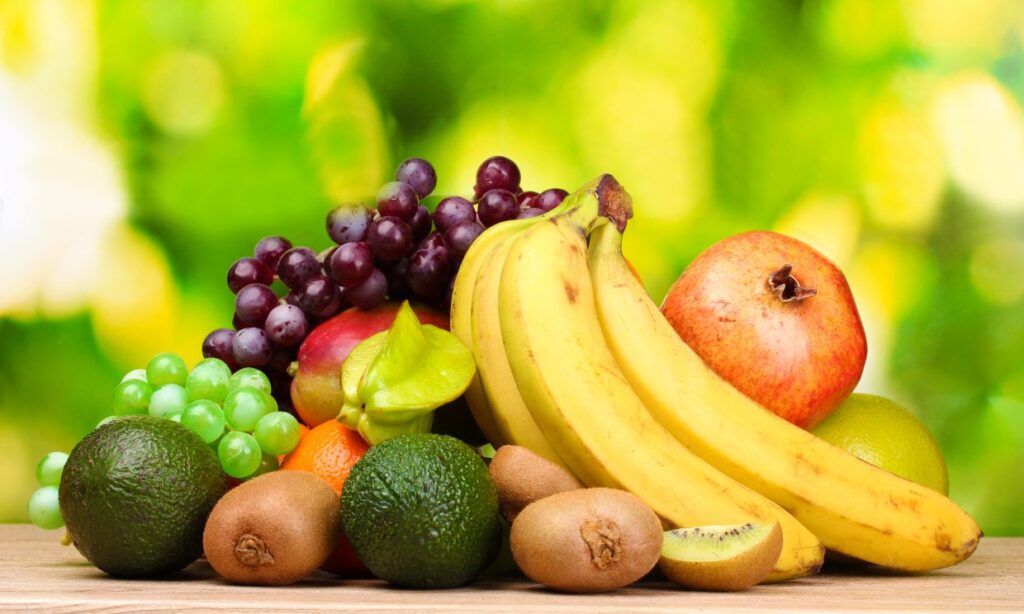
Many of us turn to cool, refreshing drinks when the summer heat builds to stay hydrated. While drinking fresh fruit juice may seem like a healthy option, eating entire fruits has several advantages for your overall health and wellbeing. Here are five strong arguments for choosing whole fruits this summer rather than fresh fruit juice:
Fiber-Rich Nutrition : The Key Benefits of Whole Fruits in Summer
With so many health benefits, whole fruits are a better option than fruit juice since they are higher in fiber, a vital ingredient. Whole fruits offer a high supply of dietary fiber that benefits general health in a variety of ways, unlike fruit juice, which frequently lacks this essential component since the pulp is removed during processing.
Types of Fiber in Fruits :
Soluble and insoluble fiber are the two primary forms of dietary fiber found in whole fruits. In the digestive system, soluble fiber transforms into a gel-like substance after dissolving in water, which lowers cholesterol and stabilizes blood sugar. Conversely, insoluble fiber prevents constipation by giving stool more volume and encouraging regular bowel movements.
Health Benefits of Fiber :
Improved Digestive Health :
As a natural laxative, fiber encourages frequent bowel movements and keeps the constipation away. Additionally, it maintains a healthy gut flora by feeding good gut bacteria.
Blood Sugar Control :
Fruits include soluble fiber, which has the ability to slow down the blood’s absorption of sugar and reduce blood sugar spikes that may occur after meals. For those who already have diabetes or are at risk of getting it, this is extremely advantageous.
Heart Health :
By attaching to and eliminating cholesterol from the body while it is in the digestive system, fiber helps reduce cholesterol levels. A high-fiber diet has been linked to a lower risk of stroke and heart disease.
Weight Management :
In general, foods high in fiber are full and can help regulate hunger, which lowers the amount of calories consumed. This can help with attempts to lose and maintain weight.
Reduced Risk of Chronic Diseases :
Research suggests that a high-fiber diet is associated with a lower risk of developing various chronic diseases, including type 2 diabetes, colorectal cancer, and cardiovascular diseases.

Fiber Content in Common Fruits
Fruits differ in how much fiber they contain. Oranges, grapes, pears, and apples, for instance, are good providers of both soluble and insoluble fiber. About 4 grams of fiber, or almost 16% of the daily recommended consumption for adults, can be found in one medium apple with the skin on.
Incorporating Whole Fruits into Your Diet :
When it comes to the health benefits of whole fruits, try to eat a variety of fruits throughout the day. You can eat whole fruits with their fiber-rich skins intact as a way to increase your intake of fiber and improve your general health and well-being. You can also enjoy whole fruits as snacks, add them to salads or yogurt, or blend them into smoothies.
In conclusion, fiber is a necessary ingredient that is present in large quantities in whole fruits and has a number of health advantages for heart health, blood sugar regulation, digestion, managing weight, and preventing disease. Including whole fruits that are high in fiber in your diet will help you live a healthy lifestyle and lower your chance of developing a number of chronic illnesses.
Also read :https://telecastindia.in/from-microsoft-to-goose-farmer-the-remarkable/
Lower sugar Content : Why Whole Fruits Are a Healthier Choice
When it comes to sugar content, it’s advisable to use whole fruits rather than fruit juice in order to preserve general health and wellbeing. Although whole fruits are inherently high in sugar, they also include important nutrients like fiber, vitamins, and antioxidants that help to lessen the negative effects of sugar on the body. Here’s why choosing whole fruits can help you better control how much sugar you eat:
Natural Vs Added Sugars :
Whole fruits are a good source of naturally occurring, health-promoting sugars, mainly fructose, glucose, and sucrose. On the other hand, a lot of fruit juices, especially those sold in stores, could have additional sugars or syrups to make them sweeter. This can lead to overindulgence in calories and negative health consequences.
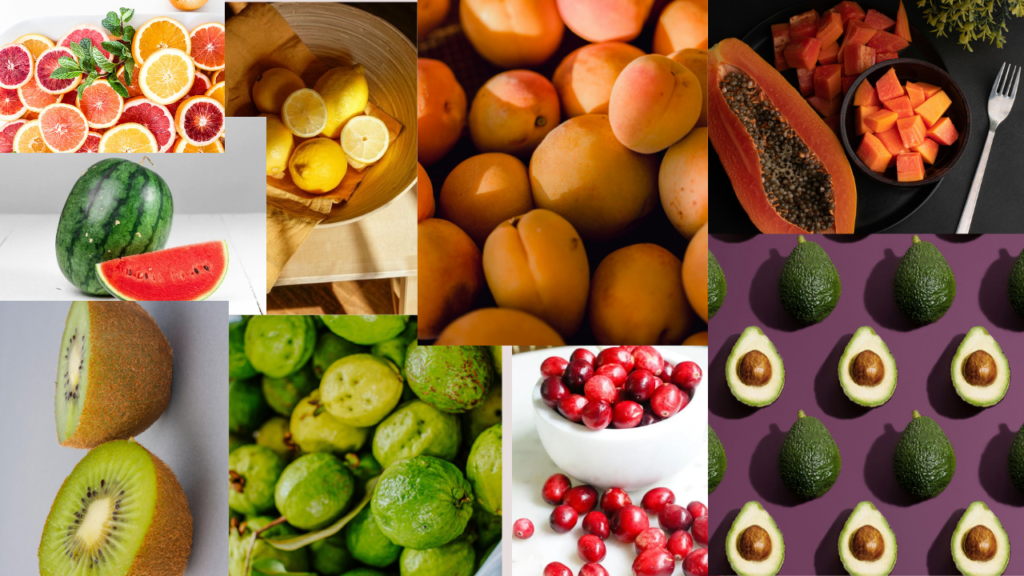
Glycemic Index :
The GI, or glycemic index, gauges how rapidly blood sugar levels are raised by carbohydrates in diet. Whole fruits often affect blood sugar levels more gently than fruit liquids since they have a lower GI. Whole fruits have a lower GI due to the fiber content and other nutrients.
Health Impact of Sugar :
Excessive consumption of added sugars has been connected to a number of health problems, including as type 2 diabetes, obesity, heart disease, and dental disorders. You may experience the inherent sweetness of fruits without the detrimental effects on your health that come with consuming large amounts of sugar if you choose whole fruits.
Fruit Choices For Lower Sugar Intake :
Certain fruits have a lower sugar content by nature, making them great options for anyone trying to control their sugar intake. Berries (strawberries, raspberries, and blues), citrus fruits (oranges and grapefruits), and apples are a few examples. These fruits are high in antioxidants and fiber in addition to having less sugar.
Incorporating Whole Fruits into your Diet
In order to reap the advantages of fruits without consuming as much sugar, try to include a range of whole fruits in your meals and snacks. Look for fruits that have lower sugar content and mix them with healthy fats or protein to help stabilize blood sugar levels even more.
In summary, selecting whole fruits rather than fruit juice is a wise move that will lower sugar intake and improve general health. Whole fruits provide natural sugars that, when paired with fiber and other necessary nutrients, provide a better option than processed fruit juices that are loaded with added sugar. Make whole fruits a mainstay in your diet to satiate your sweet need and promote overall health and wellbeing.
Portion Control And Satiety : The Benefits Of Using Whole Fruits
When it comes to controlling hunger and keeping a healthy weight, whole fruits are a better option than fruit juice due to their ability to regulate portion size and promote fullness. The following explains why choosing whole fruits might encourage sensible portion control and improve satiety:
Chewing and Digestion :
Chewing is necessary for whole fruits since it slows down the eating process and improves your body’s ability to sense fullness. Additionally, chewing causes the mouth to release digestive enzymes, which accelerates the breakdown process and improves nutritional absorption.
Calorie Density :
When it comes to calories, whole fruits are less dense than fruit liquids. This implies that you can eat more whole fruits overall for the same caloric intake as you would from a lesser amount of fruit juice. Whole fruits’ substantial bulk aids in filling your stomach and sends satiety signals to your brain.
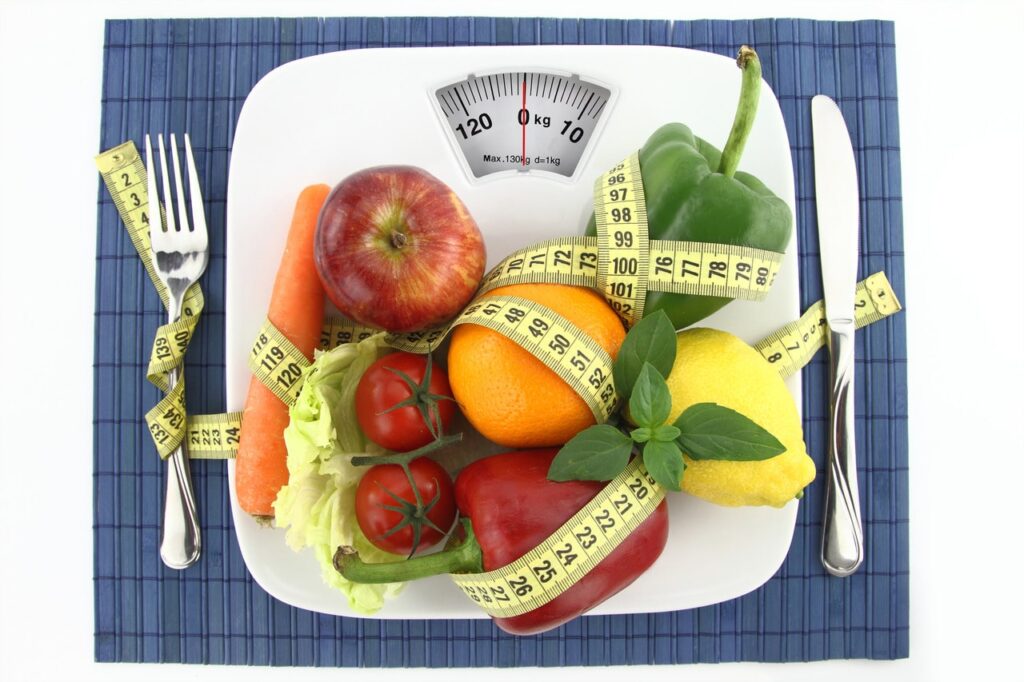
Mindful Eating :
Consuming whole fruits promotes mindful eating, which enables you to recognize hunger cues and quit when you’re full. Eating entire fruits—peeling, slicing, or biting into them—engages the senses and encourages attentive eating.
Hydration and Nutrient Intake :
A high water content in many whole fruits helps with both hydration and fullness. Oranges and watermelon, for instance, are great fruits for staying hydrated and feeling full while also supplying vital vitamins and minerals.
Nutrient Integrity : Why Whole Fruits Outshine Fruit Juice
Whole fruits have a higher nutrient integrity than fruit juice, which makes them a better option for getting important vitamins, minerals, and antioxidants. Whole fruits preserve their nutritional worth in their natural and unaltered state, unlike fruit juice, which may go through processing that degrades some components. Here’s how whole fruits offer the best nutrition and why nutrient integrity matters:
Vitamins and Minerals
Whole fruits are rich in vitamins and minerals that are vital for overall health and well-being. For example, citrus foods like oranges and kiwis are abundant in vitamin C, which supports immune function and skin health. Potassium, which is essential for healthy heart and muscles, is abundant in bananas. Eating entire fruits gives you access to a wide range of nutrients that support different body functions in concert.
Antioxidants:
Fruits include chemicals called antioxidants that aid in defending cells against oxidative stress brought on by free radicals, unstable molecules that have been linked to disease and aging. Antioxidants like anthocyanins and flavonoids are especially abundant in berries, such strawberries and blueberries. These antioxidants are present in whole fruits in their purest form, guaranteeing maximum potency.
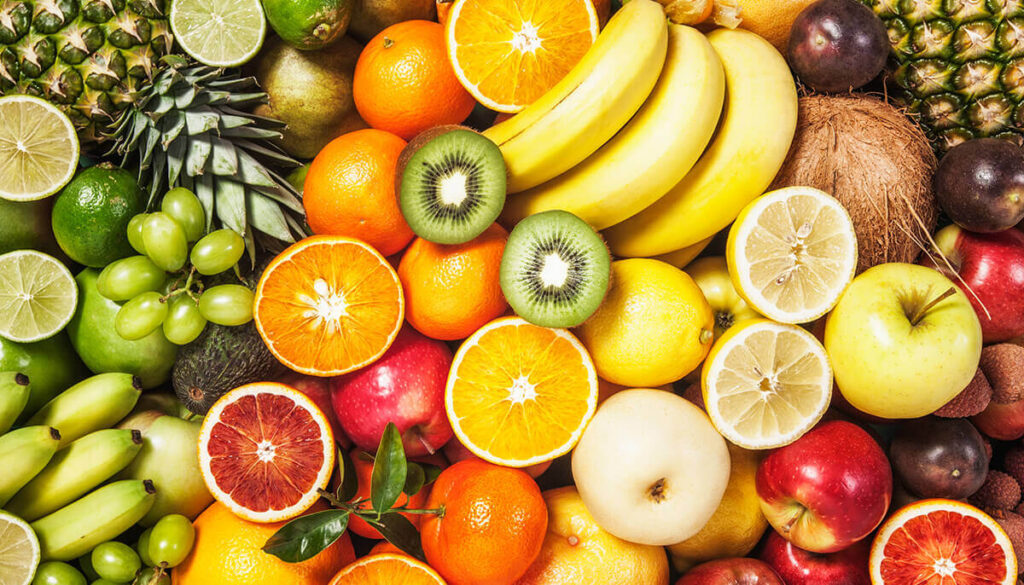
Minimized Processing Effects :
Compared to fruit juice, whole fruits are processed less, maintaining the integrity of their nutrients. Juicing concentrates sugars and may lower the fruit’s total nutritional value by removing pulp and fiber. Eating entire fruits guarantees that you will receive all of the nutrients that are naturally contained in the fruit.
Incorporating Whole Fruits into your Diet :
Add as many different whole fruits as possible to your meals and snacks to optimize the nutritional integrity of your diet. To maintain their nutritional value, try to consume fruits as close to their natural state as possible. Whole fruits can be eaten as a snack on their own, added to smoothies, or used in dishes as a natural sweetener.
In conclusion, whole fruits offer more nutrient integrity than fruit juice since they contain a wider variety of vitamins, minerals, antioxidants, and fiber in their unprocessed form. This makes them particularly advantageous in the summer. This summer, you may maximize your nutritional intake, promote general health, and boost vitality by making whole fruits a priority in your diet.
Read more :https://www.hindustantimes.com/photos/lifestyle/5-reasons-to-skip-fresh-fruit-juice-this-summer-and-opt-for-whole-fruit-101714651254122.html
Hydration and Refreshment :The Summer Benefits of Whole Fruits
Throughout the summer, it’s critical to stay hydrated and rejuvenated. Whole fruits are a great way to battle the heat and contribute significantly to reaching adequate hydration. Here’s why eating whole fruits during the summer will help you stay hydrated and rejuvenated:
Natural Water Content :
Due to their high water content, many whole fruits are great options for staying hydrated during the summer. Some of the best fruits to naturally replace electrolytes and quench your thirst include watermelon, cantaloupe, strawberries, and oranges. Eating these hydrating fruits promotes general hydration levels and aids in maintaining fluid balance, both of which are crucial on hot summer days.
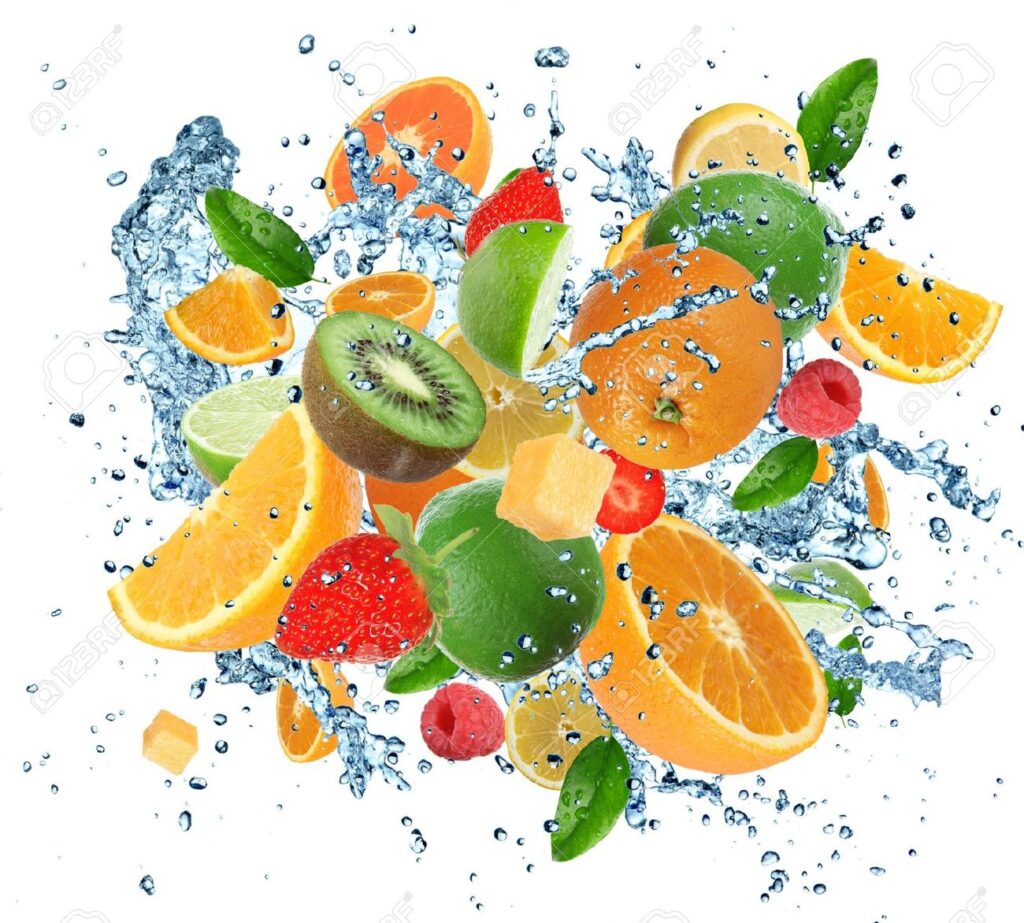
Electrolyte Balance :
Whole fruits include important electrolytes like potassium and magnesium in addition to water. These electrolytes are necessary for maintaining adequate hydration and muscle function. Sweat from summertime outdoor activities depletes the body of electrolytes, which are essential for maintaining fluid equilibrium. Fruits high in electrolytes, such as bananas and kiwis, can help you stay hydrated and replenish these essential nutrients.
Refreshing and Cooling Effects :
A delicious delicacy to savor on hot summer days, whole fruits’ inherent sweetness and juiciness create a refreshing and cooling sensation. During the summer heat, there’s nothing better than biting into a luscious peach or slicing into a chilly watermelon to instantly improve your mood.
Hydration Beyond Beverages :
Although hydration requires water consumption, incorporating hydrating fruits into your diet adds some diversity and taste to your hydration regimen. Whole fruit snacks can help you stay hydrated overall and supplement your fluid consumption. This lowers your risk of dehydration and related symptoms, which include headaches and weariness.
Discover more from Telecast India
Subscribe to get the latest posts sent to your email.

